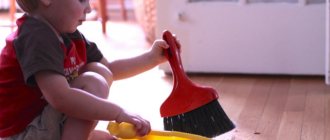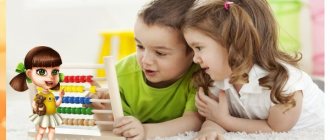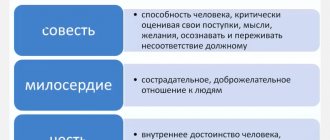“Spiritual and moral education - as the basis for the harmonious development of a student”
• Secondly, in
the modern world, a small person lives and develops, surrounded by many different sources of strong influence on him, both positive and negative, which daily fall on the child’s fragile intellect and feelings, on the still emerging sphere of morality.
• Thirdly , education in itself does not guarantee a high level of moral education, because education is a personality quality that determines in a person’s everyday behavior his attitude towards other people on the basis of respect and goodwill towards each person.
• Fourthly , equipping with moral knowledge is also important because it not only informs the child about the norms of behavior established in modern society, but also gives ideas about the consequences of violating norms or the consequences of this act for the people around him.
The moral education system includes:
• Firstly, understanding and taking into account in the work all sources of moral experience of students. Such sources are: activities (educational, socially useful), relationships between children in a team, relationships between students and teachers and parents, aesthetics of everyday life, the world of nature, art.
• Secondly , the correct balance between forms of activity and education at different age stages.
• Thirdly , the inclusion of moral criteria in the assessment of all types of activities and manifestations of the personality of children without exception. The thing is that education is just a side effect of interaction, deep communication between people, only this gives the effect of education, everything else is the child’s self-adaptation and self-determination. It is not the teacher, not the parents who raise the child, but the child adapts to the behavior of the parents and also adapts to the life situations that make up his life path.
Main sources of moral experience
This is, first of all, an educational activity. The moral development of students in the classroom is carried out through the content of program and didactic material, and the organization of the lesson itself. Educational material, especially in literature and history, has enormous potential for moral influence on schoolchildren. It contains a large number of moral and ethical judgments. During the lessons, the teacher directly leads students to understand their relationship to man and society.
WITH
The personality of the teacher has a strong influence on the moral development of schoolchildren in the learning process.
Each lesson the teacher implements certain goals, and not only those formulated in the plan. The teacher’s behavior, his gestures, his manner of dressing and speaking are reflected in the child’s mind; the nature of communication with him, with other students, under various circumstances; how he behaves with colleagues, how he reacts to the successes and failures of his classmates. The educator or teacher requires students to be careful, disciplined, and to fulfill their duties. And the result will depend on how demanding and consistent the teacher turns out to be. With skillful organization of both educational and extracurricular activities, students develop the foundations of moral behavior and spiritual culture.







